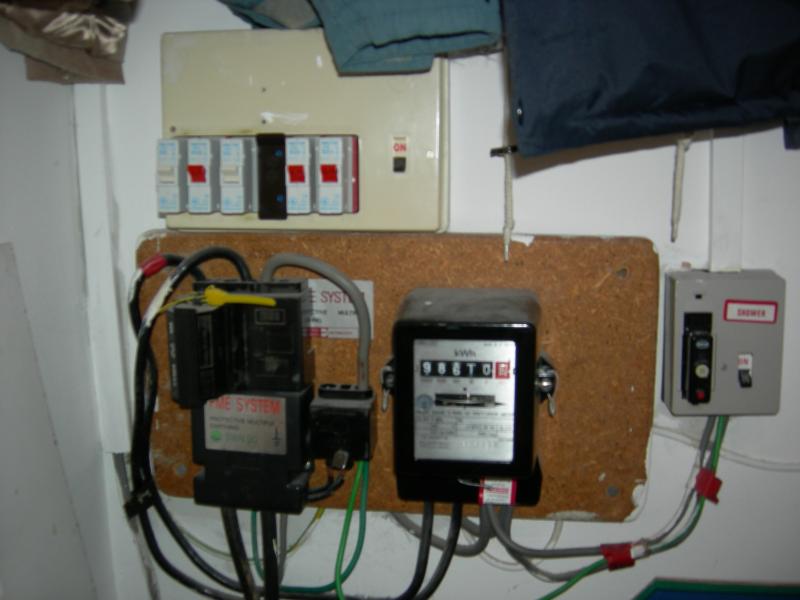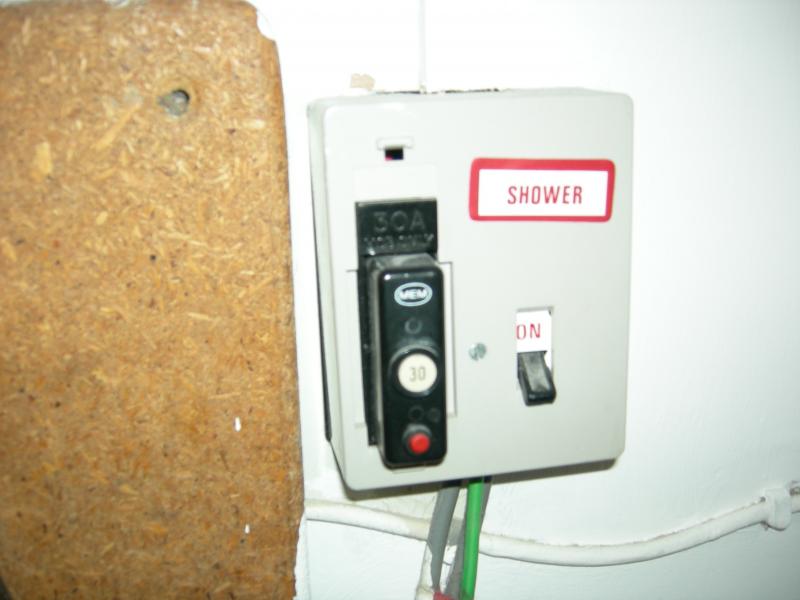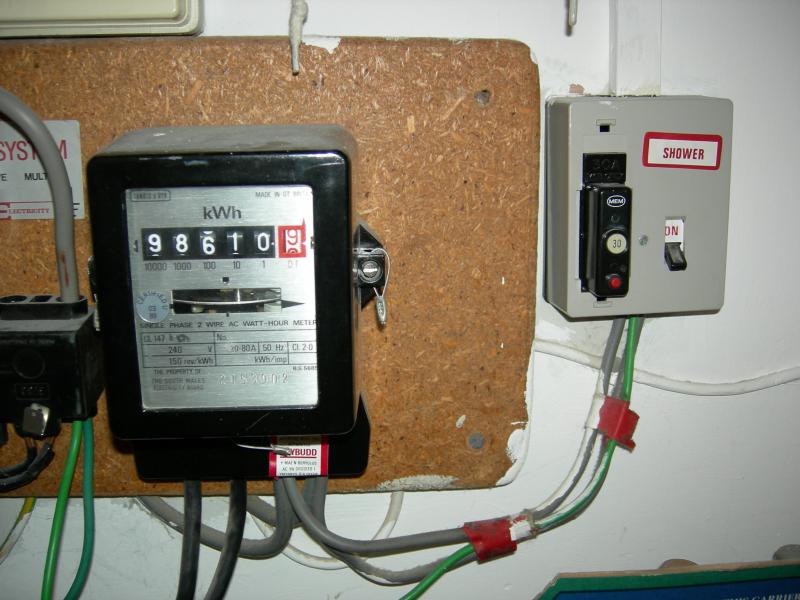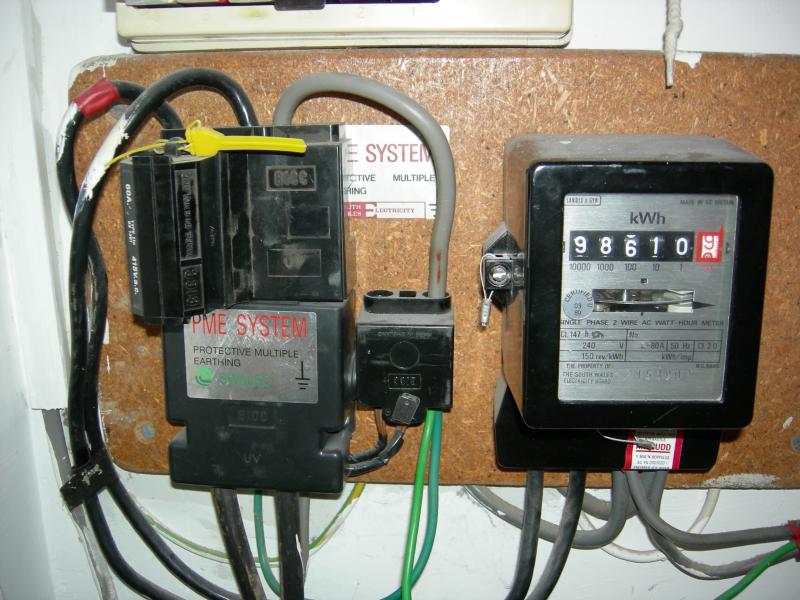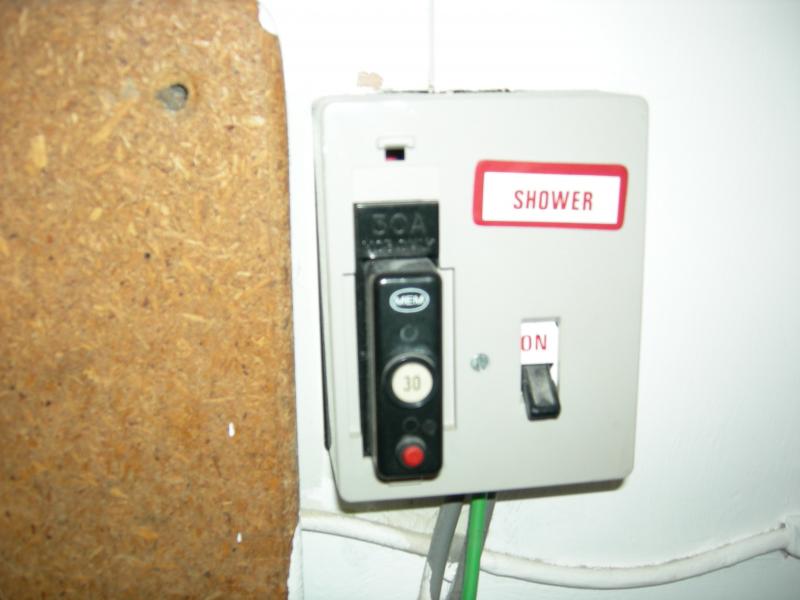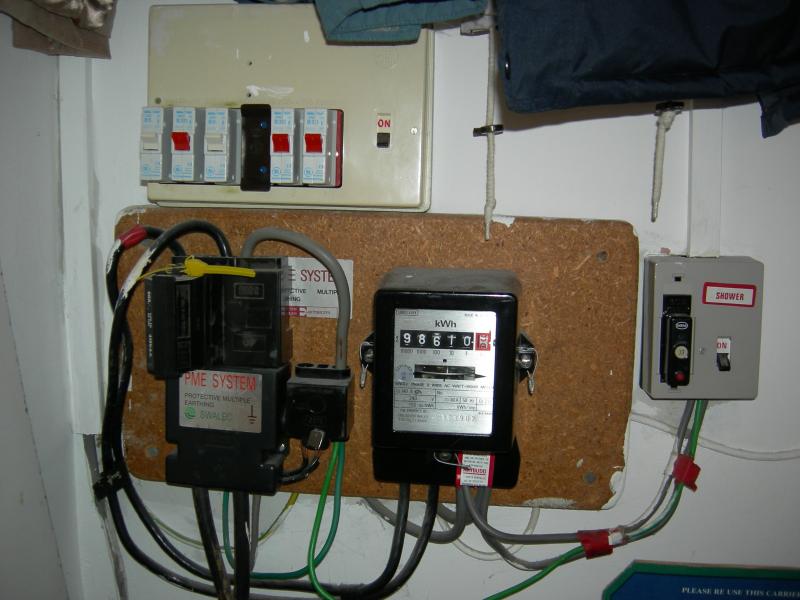Hi Forum, I would be grateful for some advice. I intend to change my 7kw shower for a 7.5 Shower. The reason I am not going any bigger is that I don't want to change the 6mm Twin and Earth cable. The cable is less that 10 metres long and travels through a plastic trunking and under floorboards on its own. The shower is protected by it's own 30a MCB in it's own consumer unit placed next to the main consumer unit. The main consumer unit is an old WYLEC, but I have replaced the wired fuses with plugin MCB's. Do I need to change the shower's consumer unit with a RCD? The one I have seen is a 63A 30mA RCD with a 50A MCB. Is this too big? Also can someone tell me the difference between a RCD, a RCCB and a RCBO. Thanks,
Papabob
Papabob


